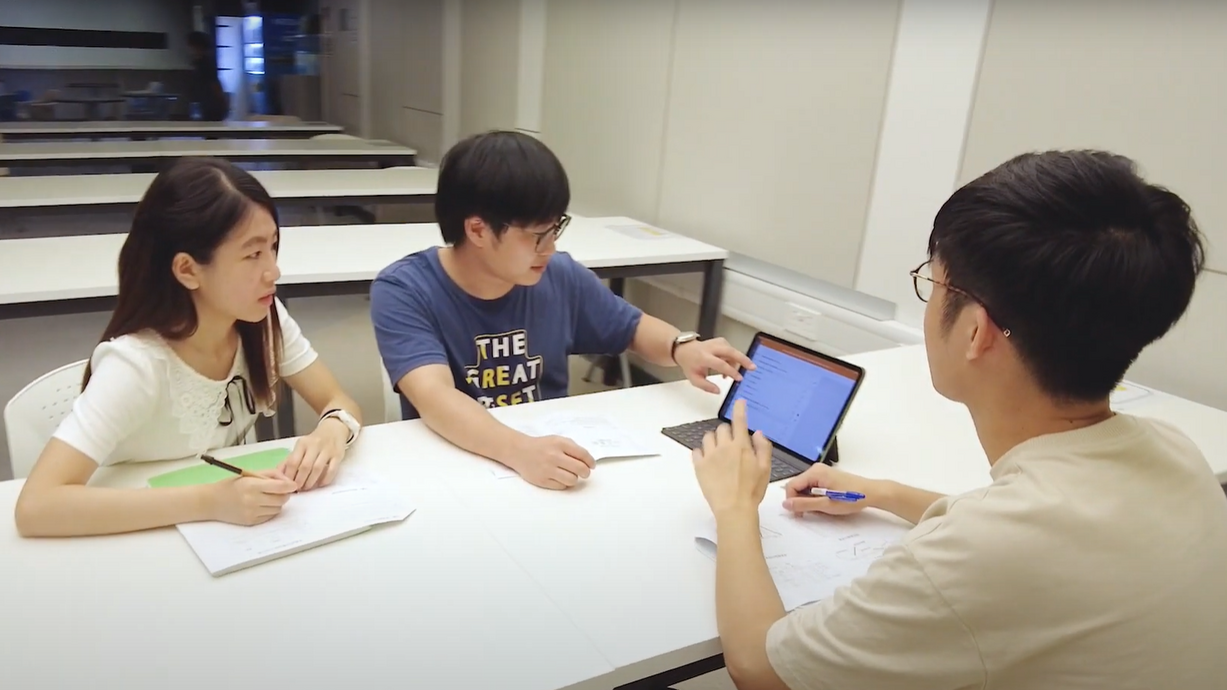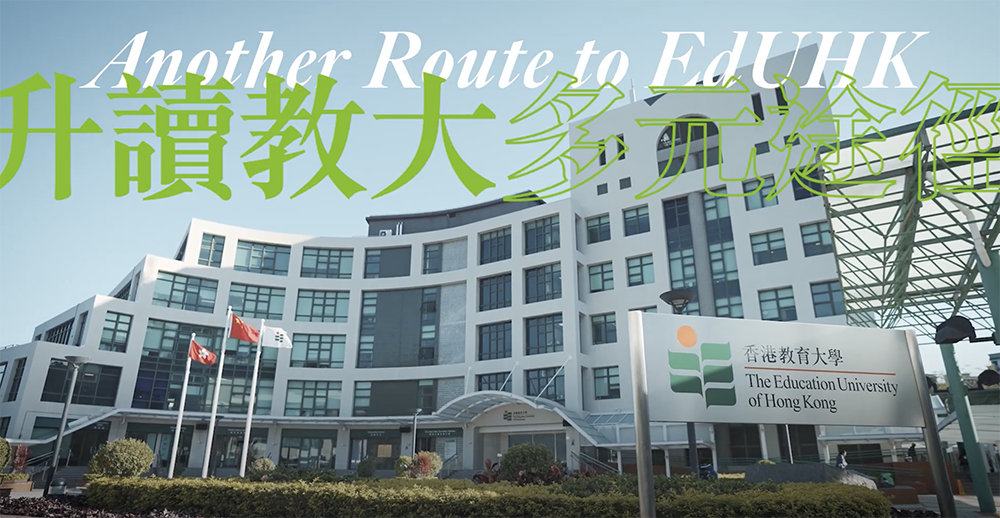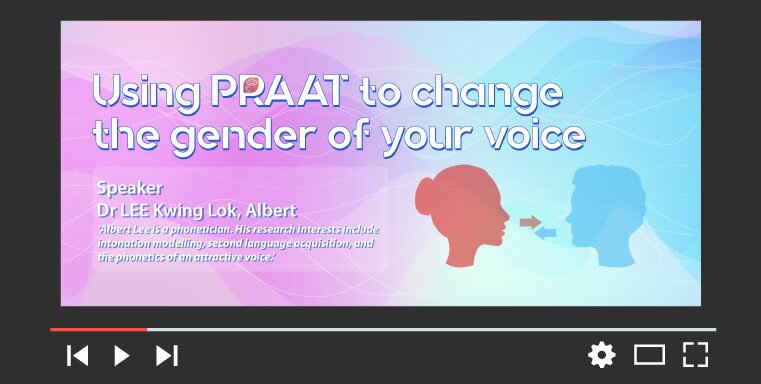|
Overview
Be More Than Good at English
The BA(ESDC) programme aims to cultivate a new generation of English studies students with strong digital literacy skills through a digitally enriched curriculum. The programme provides a wide range of courses to build a solid foundation in English language, linguistics and digital literacy, consolidated by hands-on experience in using digital tools for language applications. Students will be empowered to develop digital contents for the learning and teaching of languages, to publish in digital media and to support and critically evaluate digital communication solutions. A combination of English studies and digital communication technology will allow students to further contribute to the transformation of education, media, and publishing in the digital age. |
Programme Aims and Features
Upon successful completion of the programme, students should be able to:
|
Programme Structure
Year 1 Admissions Total 121 Credit Points (cps) | Senior Year Admissions Total 60 Credit Points (cps) | ||
| 42 cps | 24 cps | |
| 3 cps | 3 cps | ||
| 3 cps | 3 cps | ||
| 3 cps | 3 cps | ||
| 3 cps | / | ||
| Minor / Electives | 30 cps | 15 cps | |
| General Education | 22 cps | 6 cps | |
| Language Enhancement | 9 cps | / | |
| Final Year Project (Honours Project / Capstone Project) | 6 cps | 6 cps | |
 Internship
Students are required to participate in a compulsory internship (3 cps) in the Summer after Year 3 (for SY admission) / in the Summer after Year 3 or Year 4 Semester 1 (for FYFD admission from 2025 intake onwards). The Internship aims to enable students to integrate and apply in real-life settings the knowledge and skills gained in their studies. The Internship also prepares students to handle challenges they may encounter in real work situations, and provides opportunities for them to consider their future career directions. |
Career Prospects
The BA(ESDC) programme provides excellent background for job opportunities in education, media, journalism, publishing and communication. These fields have become highly data-intensive and require talents who can acquire and utilise information from the international English-speaking world at an unprecedented speed. The analytical training provided by English linguistics courses plays an essential role in all aspects of integration of the use of English in the digital world.
Graduates will be able to transfer their multidisciplinary knowledge and their digital and intercultural awareness to participate in future development of digital learning. They will also be well-prepared to work for international technological enterprises or any other business with technology-driven innovation in which good English communication skills, a high level of digital flexibility and English proficiency are required. |

Taster Class Videos !
BA (Hons) in English Studies and Digital Communication
Dr Lee Kwing Lok Albert
Programme Leader
EdUHK Digital Communication Programme for a Diversified Workforce Transformation and Expanded Career Prospect
Language is the primary tool for information exchange in the digital world. Arts students of the new age should not only be biliterate and trilingual but should also be equipped with knowledge in digital literacy and application skills. As industries accelerate digital transformation, the Faculty of Humanities, EdUHK, is offering the Bachelor of Arts (Honours) in English Studies and Digital Communication programme to improve students’ competitiveness.
FAQs
Yes, BA(ESDC) offer both Year 1 Entry and Senior Year Entry.
BA(ESDC) provides the same education qualification as other four-year full-time BA programmes.
IELTS or PSC test results are not compulsory for programme application, but you are welcome to provide relevant qualifications for reference.
An interview may be required. The format (online or face-to-face) is subject to change depending on the pandemic situation. It normally consists of self-introduction and group discussion. Direct offers may be given to applicants with outstanding academic performances.
The BA(ESDC) programme aims to cultivate a new generation of English studies students with strong digital literacy skills through a digitally enriched curriculum. The programme provides a wide range of courses to build a solid foundation in English language, linguistics and digital literacy, consolidated by hands-on experience in using digital tools for language applications. Students will be empowered to develop digital contents for the learning and teaching of languages, to publish in digital media and to support and critically evaluate digital communication solutions. A combination of humanities and digital communication technology will allow students to further contribute to the transformation of education, media, and publishing in the digital age.
Yes, the internship is a compulsory element in the programme curriculum. Students will be able to choose whether their internship takes place in Hong Kong or in the Greater Bay Area. The internship company will be arranged and assigned by the Programme. If students have any connection with a targeted company, they are welcome to refer the information to the Programme Team for consideration.
Applicants without any formal training on computing are welcome to join the programme. The IT-related courses are designed at an elementary level so as to build a solid foundation in students’ digital literacy. Students will be given hands-on practice in using digital tools for language applications inside and outside classrooms.
No. There is no specific admission requirement on applicant’s IT competency.
Yes, non-Cantonese-speaking students are welcome to apply to our programme. The following proficiency test result can also be used to fulfill the Chinese Language Requirement of the programme:
| Proficiency Tests | Minimum Requirements |
|---|---|
GCE System | Grade E or above in GCE AS-level or A-level Chinese; or Grade C / Grade 4 or above in GCSE / IGCSE / GCE O-level Chinese |
| IB | Grade 4 in Chinese Language subject |
| Others | Other Chinese language qualifications deemed acceptable by the University |
Enquiries For Programme Information Tel: (852) 2948 7247 Email: a4b093@eduhk.hk
For Admission Information Tel: (852) 2948 6886 |
Disclaimer:
- Classes will be held in Tai Po Campus and Tseung Kwan O Study Centre / North Point Study Centre / Sports Centre / Kowloon Tong Satellite Study Centre as decided by the University.
- Every effort has been made to ensure the accuracy of the information contained in this website. Changes to any aspects of the programmes may be made from time to time as due to change of circumstances and the University reserves the right to revise any information contained in this website as it deems fit without prior notice. The University accepts no liability for any loss or damage arising from any use or misuse of or reliance on any information contained in this website.
- Any aspect of the courses and course offerings (including, without limitation, the contents of the course and the manner in which the course is taught) may be subject to change at any time at the sole discretion of the University if necessary. Without limiting the generality of the University’s discretion to revise the courses and course offerings, it is envisaged that changes may be required due to factors including staffing, enrolment levels, logistical arrangements, curriculum changes, and other factors caused by change of circumstances. Tuition fees, once paid, are non-refundable.
- Students admitted into this programme are required to visit the Greater Bay Area (GBA) and/or other parts of Chinese Mainland. The programme may also require students to participate in other non-local learning experience for completion of the programme. While the visits are subsidised, students are required to contribute part of the estimated cost of the visits ("students’ contribution"), whereas any personal entertainment, meals expenses, travel document fee and personal insurance costs shall be at students’ own expense. The estimated cost of the visits and students’ contribution for students admitted to the coming cohort is yet to be available due to a variety of factors such as inflation of cost of the visits, trip duration, traveling expenses, the exchange rate, etc.









_1_1693975929.jpg)
_2_1693988463.jpg)